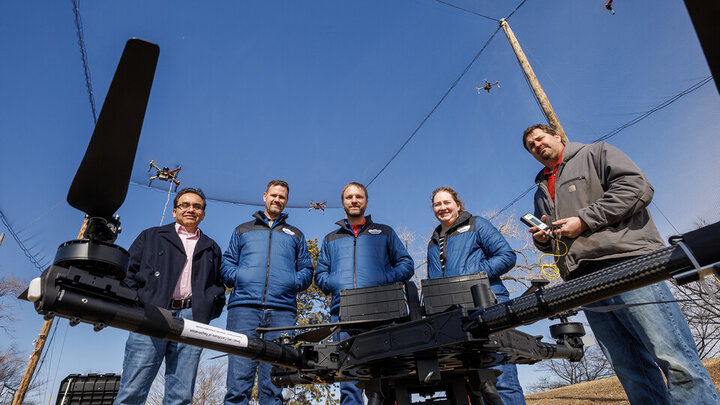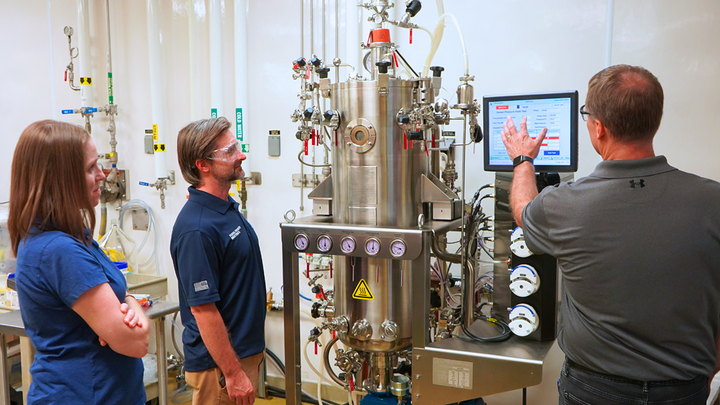The University of Nebraska–Lincoln's Nebraska Intelligent MoBile Unmanned Systems Lab, known as NIMBUS, has received nearly $2 million in funding to advance its work on an integrated suite of robotics and drone technologies that will push forward research in the state and around the world.
Two grants — one from the National Science Foundation, the other from the U.S. Department of Agriculture's National Institute of Food and Agriculture — will enable NIMBUS researchers to push the boundaries of what robots can do and expand human understanding of how climate change is impacting agricultural, aquatic and wildland systems. Both projects will offer graduate and undergraduate students training opportunities at the forefront of robotics research.




